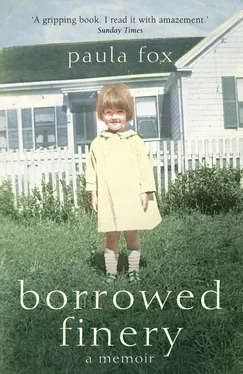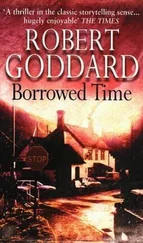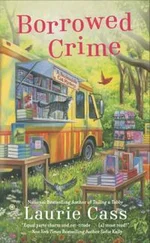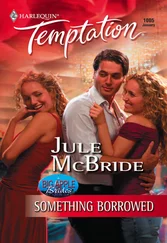A mile or so away from the tree was the Delano home where we were once invited to tea. It was during the period when a family member, Franklin Delano Roosevelt, was governor of New York State. I might have forgotten the grandeur of the house and of the great winding staircase if I had not for the first time glimpsed the possibility of beauty in clothes, watching two little Delano girls hovering like butterflies about the table in white organdy dresses, slipping little cakes into their mouths.
We went to a neigboring town to attend a dinner given for a bishop. He sat at the head of a long table. During a lull in the general conversation, I asked the bishop, “Do you like me?” and he replied, “Don’t you think your question is a little premature?”
I was chagrined. Later, when Uncle Elwood smiled as he told people the story of my question and the bishop’s response, I was confused by the currents of pride and shame running through me and felt a small pinch of estrangement from him.
Uncle Elwood wrote his sermons and newspaper columns on an Underwood typewriter on a table that stood in the middle of his study. It was a large, square, plain room with big windows. On fair days, when the light poured in, it seemed to float. Books lined one wall. Against another was an immensely tall desk that suggested a Chinese temple I had seen in an issue of the National Geographic. It had many tiny doors, which opened to dusty secret passages. In little drawers, mostly empty, there were piles of foreign coins, mementos of trips to Europe, and a piece of yellowed hardtack that Uncle Elwood told me dated from the Civil War. I would surprise myself with it, the last thing I examined before I got down from a high desk chair. I had to fight off an impulse to eat it.
On the wall beside the desk there hung a photograph of Edwin Markham, the poet, and he had written a few lines from his poem “The Man with the Hoe” in the open space beneath it. He had more beard than face. I invented a story: He was the missing one of the Smith Brothers whose cough drops came in a box illustrated with sketches of themselves, bearded and disembodied, that Uncle Elwood brought home for me when I had a sore throat or a cold.
Except for an occasional clatter of typewriter keys, there was a companionable silence between us. He asked me once, “What shall I preach about next Sunday, Pauli?”
“A waterfall,” I replied at once. I had just been thinking about a recent picnic we had on the shore of a stream fed by a small cascade whose spray dampened our sandwiches and us.
I can still recall the startled pleasure I felt that Sunday in church when I realized his sermon was indeed about a waterfall. I grasped consciously for an instant what had been implicit in every aspect of daily life with Uncle Elwood—that everything counted and that a word spoken as meant contained a mysterious energy that could awaken thought and feeling in both speaker and listener.
An ancient parishioner, “old as the hills,” Uncle Elwood observed, died in her sleep. He was named executor in her will. A few days after her funeral service in the church, we went to the Washingtonville boardinghouse where she had lived for many years. Her room had not been touched. The unmade bed, a half-pulled-out drawer in a small bureau, gave the place a disheveled look. Uncle Elwood walked across the dusty floor to a window, threw it open, and dusted his hands in a finicky way.
There was a hard-hearted aspect to his nature. Perhaps he had grown too accustomed to the dying, to death. We spent less than fifteen minutes in the room. He collected a few papers from a table and plucked, from a tangle of threads and spools in a sewing basket, a small ring with an amethyst stone that he gave me on the spot.
He spoke to the elderly landlady who was fluttering about in the hallway, asking her to pack Miss Hattie’s things, keep whatever she liked, and give the rest to charity.
On our way home that day, he parked the car in front of a large house on the outskirts of Newburgh. Its roof formed steep hills, each one crowned with a chimney. Uncle Elwood sat in silence for a moment, his hands resting on the steering wheel.
Several years earlier, he told me, before he had brought me home to live with him, he had been on what he called a “thinking walk” in a field near Balmville. Suddenly he heard alarmed cries from a neighboring field. He turned to see that an untethered bull was about to heave itself at a young woman who, at that very second, hiked up her skirt and turned to run away from it. He diverted the animal by presenting himself as a target. The woman escaped and so did he. That was how he met Elizabeth, the person we were about to visit in the many-chimneyed house.
After the incident with the bull, they had become friends. A year or so later she fell ill and was now largely confined to her bed. Despite her loss of health, he proposed marriage to her. Regretfully, she refused him. All this was told to me in a tone in his voice I’d not heard before—elegiac, I tell myself now.
“Would you like to visit her?” he asked. I was curious and said yes. I couldn’t conceive of him other than as a nurse to his mother, a savior for me, and the shepherd of what appeared—if I thought about it at all—as a world full of ungainly sheep stumbling along behind him, but never as someone’s husband.
A maid opened the front door to us, and we followed her up a flight of stairs and into an enormous overheated bedroom crowded with furniture. A woman reclined in the bed against a pile of pillows almost as high as a hayrick. Her face was pale beneath her piled-up, silky-looking gray hair. Her thin listless hands lay on the coverlet. Her voice was pleasant and utterly assured.
Remembering its resonance, I now wonder if her illness, a thyroid imbalance, was itself the source of her self-confidence. After all, whatever its miseries, it had eliminated the necessity of making a choice, and the attendant anxiety that might have been aroused.
Her evident interest in me was puzzling. I grew conscious of my breathing and aware at the same time that I felt alone, cut off from Uncle Elwood. I moved to his side. For a while I was relieved that Elizabeth had turned his proposal down.
Laughter erupted from Uncle Elwood like a Roman candle, and at its peak he might exclaim, in a choked voice, “Killing!”
I learned I could evoke his laughter by imitating people, especially old Mr. Howell. There were other ways I contrived to set him off, some more successful than others.
One day he brought home a dog, a chow with bushy rust-colored fur and a tongue as black as licorice. He called him Ching. The dog was amiable, if reserved, with me.
On an early evening, Uncle Elwood drove to Newburgh to do an errand and took me along. Ching sat on the backseat, and I joined him there after Uncle Elwood had parked and left the car with his customary quickness of movement.
The dog was wagging his tail in a leisurely fashion. Uncle Elwood’s gray suede gloves were lying where he had tossed them on the seat. One thing led to another. I pulled a glove down over Ching’s tail and hid on the car floor, murmuring to Ching so he would keep up his tail wagging, hugging myself in anticipatory glee as I visualized Uncle Elwood’s face when he caught sight of a hand waving at him through the rear window.
I heard his rapid returning steps on the sidewalk. He paused a few feet from the car. It was absolutely still outside. I nearly shrieked. Then the door opened. “Pauli!” he exclaimed in apparent astonishment, his eyes crinkling with laughter.
In later years, I realized that Ching and I hadn’t fooled him for an instant, that what his laughter had expressed was appreciation of my cunning as he stood near the car, his attention momentarily caught by the flicker of a slowly waving gray hand.
Читать дальше












